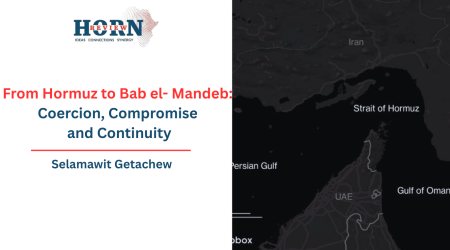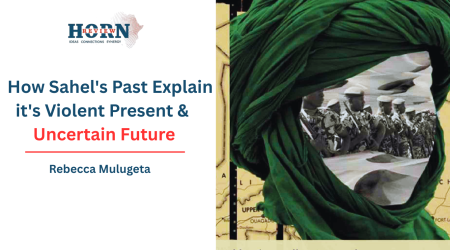
26
Jun
Divine Mandates & Earthly Agendas: The Mirror of Faith in Israel-Iran War
The missiles arcing between Tehran and Tel Aviv blaze with more than explosive payloads, they are emblazoned with divine banners. Both Iran and Israel frame their existential struggle through sacred narratives, invoking God, holy land, and apocalyptic destiny. beneath this celestial justification lies a grubbier reality an instrumentalization of faith to serve nationalist agendas, consolidate domestic power, and obscure profound strategic miscalculations. This unholy alliance of religion and politics isn’t just fueling the conflict it’s ensuring its catastrophic perpetuation.
Iran’s theocracy has long mastered the dark art of transmuting religious fervor into geopolitical leverage. Portraying itself as the vanguard of the Muslim Ummah against a Zionist entity, Tehran frames the conflict not just as political, but as a sacred duty transcending national borders. Its Axis of Resistance ,a network of proxies like Hezbollah, Hamas, and the Houthis is deliberately packaged as a pan-Islamic bulwark . This is pure theatrics. Iran, a predominantly Shia power, leverages Sunni Palestinian suffering as a rallying cry, attempting to paper over the deep sectarian chasms that fracture the Muslim world. Its champions Jerusalem’s liberation, knowing the city’s profound significance to Sunnis globally, while its actions primarily bolster Shia militias whose regional agendas often clash violently with Sunni powers like Saudi Arabia.
This sectarian sleight of hand is transparently self serving. By positioning Israel as an existential threat to Islam itself, Tehran deflects attention from its own brutal repression of religious minorities at home. Baha’is face systematic persecution, their businesses shuttered and graves desecrated. Sunni Muslims endure discrimination, their leaders imprisoned and mosques monitored. Converts from Islam risk torture. Jews, though a recognized minority with a parliamentary seat, navigate a labyrinth of legal discrimination where their testimony holds less weight in court and their passports forbid travel to “occupied Palestine”.
The regime’s performative outrage over Al-Aqsa Mosque stands in grotesque contrast to its domestic war on diverse religious expression. Their championing of the Palestinian cause is less about solidarity and more about burnishing revolutionary credentials and seeking hegemony under a divine banner.
Israel’s initial security-driven posture rooted in the secular, realpolitik need to counter a state explicitly dedicated to its destruction — has been dangerously corrupted by the metastasizing influence of religious extremism within its own political fabric. The current government isn’t conservative,it’s beholden to messianic nationalists whose worldview is steeped in biblical entitlement and ethno-religious supremacy.
Figures like National Security Minister Itamar Ben-Gvir, a convicted inciter of racism, and Finance Minister Bezalel Smotrich, who openly yearns for a “Torah justice system,” wield unprecedented power . Their vision isn’t security through strength or diplomacy, but divine mandate through conquest. West Bank settlements surge not as strategic outposts, but as the physical manifestation of a God-given right to Judea and Samaria, trampling Palestinian aspirations underfoot and pouring gasoline on the flames of resistance.
It transforms pragmatic security challenges into intractable holy wars. When land is divinely ordained, compromise is apostasy. When the “other” is framed as Amalekites deserving of annihilation as shockingly significant segments of the Israeli public now voice dehumanization becomes policy . Netanyahu’s reliance on these forces to maintain power shackles Israel to their extremist agenda, making rational de-escalation impossible and ensuring the perpetual cycle of violence that serves the political survival of both Israeli hawks and Iranian hardliners. The recent devastating strikes on Iran, framed as a necessary preemption against a “nuclear holocaust,” risked triggering the very regional inferno Israel claims to prevent, demonstrating how religiously-infused existential panic can override sober strategic move.
Both nations’ religious framing is collapsing under the weight of its own contradictions and cruelty. Iran’s desperate bid to cast the war as a unifying Sunni-Shia jihad against Zionism is failing. Sunni-majority states, wary of Iranian expansionism and prioritizing stability, have largely rejected Tehran’s call to arms, despite genuine popular anger over Palestine. The Axis of Resistance looks increasingly like a Shia project using Sunni pain. Israel’s embrace of religious nationalism, meanwhile, has shattered its international standing and corroded its social fabric from within. Mass protests against the government’s conduct, refusals of military service, and warnings from pilots and academics reveal a society deeply divided, haunted by the moral and strategic bankruptcy of endless occupation and maximalist violence.
The greatest victims, as always, are the civilians caught in the crossfire Palestinian, Iranian whose blood waters the barren ground of holy war. Iran’s population, reeling under economic collapse and state brutality, now endures Israeli bombs, their suffering exploited by a regime desperate to redirect rage outward . Palestinians in Gaza and the West Bank face annihilation and annexation, their national aspirations sacrificed on the altars of Israeli settlement dogma and Iran’s proxy warfare.
The promise that divine righteousness guarantees victory rings hollow against the rubble of bombed homes and the silence of mass graves. This conflict, dressed in sacred vestments, is revealed as a brutally secular tragedy a struggle for power, land, and survival, where religion is not the cause, but the cynical catalyst and accelerant.
Escape from this death spiral demands ripping away the religious shroud obscuring earthly grievances and political solutions. It requires confronting the hard truths Iran’s regime uses faith as a tool of oppression and regional ambition, while Israel’s capitulation to religious extremists betrays its founding secular democratic ideals and guarantees perpetual insecurity. Lasting peace will be built not on competing apocalypses, but on recognizing shared humanity, upholding universal rights, and pursuing justice through negotiation, not divine mandate.
Anything less ensures the rivers of blood will only flow wider, sanctified by the very faiths that preach peace, yet wielded by men who worship only power . The powder keg of zealotry is lit dousing it requires discarding the matchbooks of manipulated faith.
By Samiya Mohammed,Researcher,Horn Review










